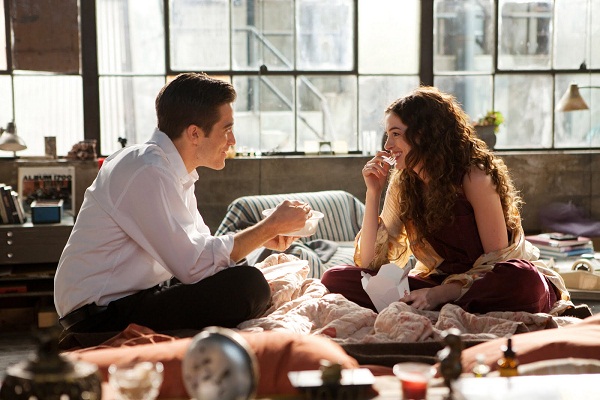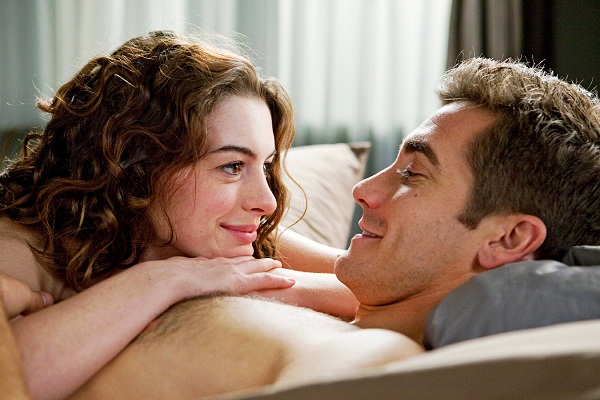Ladies man Jamie Randall (Jake Gyllenhaal) is a super smooth talker
working in an appliance store. When fired for having sex with a
co-worker, he is pressured to find a new profession. His brother, a
lazy, overweight computer geek, has already made a fortune selling
computer software to pharmaceutical companies. As such, Jamie uses
his charming persona to become a sales representative for Pfizer,
working to sell drugs to local doctors and GP’s. It’s a cutthroat
business, but he still manages to work his way around people. He
meets his match when he meets Maggie (Anne Hathaway), a slightly
neurotic artist who initially holds him in contempt but then grows
to appreciate his fleeting nature. She is only interested in casual
sex but slowly Jaime becomes more attached and more concerned about
her wellbeing.

Love and Other Drugs was adapted from Jamie Rediy’s book
“Hard Sell: The Evolution of a Viagra Salesman” by Marshall
Herskovitz, Charles Randolph and director Edward Zwick. It seems
like an oddity for Zwick, who has made a career of unsubtle but
effective spectacles like The Last Samurai, Blood Diamond and
Defiance. His lack of familiarity with the romantic comedy genre
is most evident with the jarring changes of tone of this film. It
starts off as a quirky comedy but later turns into a more
conventional melodrama. There’s also a distinct lack of wit in the
screenplay, and Jaime’s supposed suave charm is so overdone and
phoney that it’s difficult to believe that any of the women in the
film could fall for it. Annoyingly, they do so repeatedly. The
intrusion of Jaime’s overweight brother, the typical fat character
employed for comic relief, is a superfluous addition that adds
little to the narrative.
In
the second half of the film’s nearly two hours, the story changes
gears and becomes a medical melodrama as Maggie’s illness
deteriorates. At this point the film seems to be becoming more
thoughtful and smarter than the typical Hollywood romantic comedy,
but it’s undone by an extremely safe and predictable conclusion,
complete with the kind of mawkish speech that only a romantic comedy
could provide.

Jake Gyllenhaal and Anne Hathaway reunite here, having worked
previously together in Brokeback Mountain. Gyllenhaal is an
unusual choice for Jamie and struggles to convey his character’s
artificial smoothness and supposed suave, and he totally overplays
the opening scene. His choice of stealing drugs from rival companies
seems like an incredibly unlikely practice, and after he transforms
into the typical nice guy in the latter portion of the film his
character becomes bland, rather than sincere. This is less
Gyllenhaal’s fault than the screenplay’s, which fails to give his
character a meaningful backstory – the only particularly memorable
aspect about his character is that he never managed to finish
medical school.
Hathaway is rather spiteful as Maggie, and not always likeable in
the way that she treats Jamie, particular in the second act. The
women in the film generally do not come off well here as they are
either gullible, or in Maggie’s case, plain irrational. Notably, the
love scenes shared between Jamie and Maggie are more frank than most
mainstream comedies. It’s just unfortunate that the film is a lot
less interesting when the characters have their clothes on.
Ultimately, the cardinal rule of a romantic comedy is broken: you
don’t care whether they end up together or not.